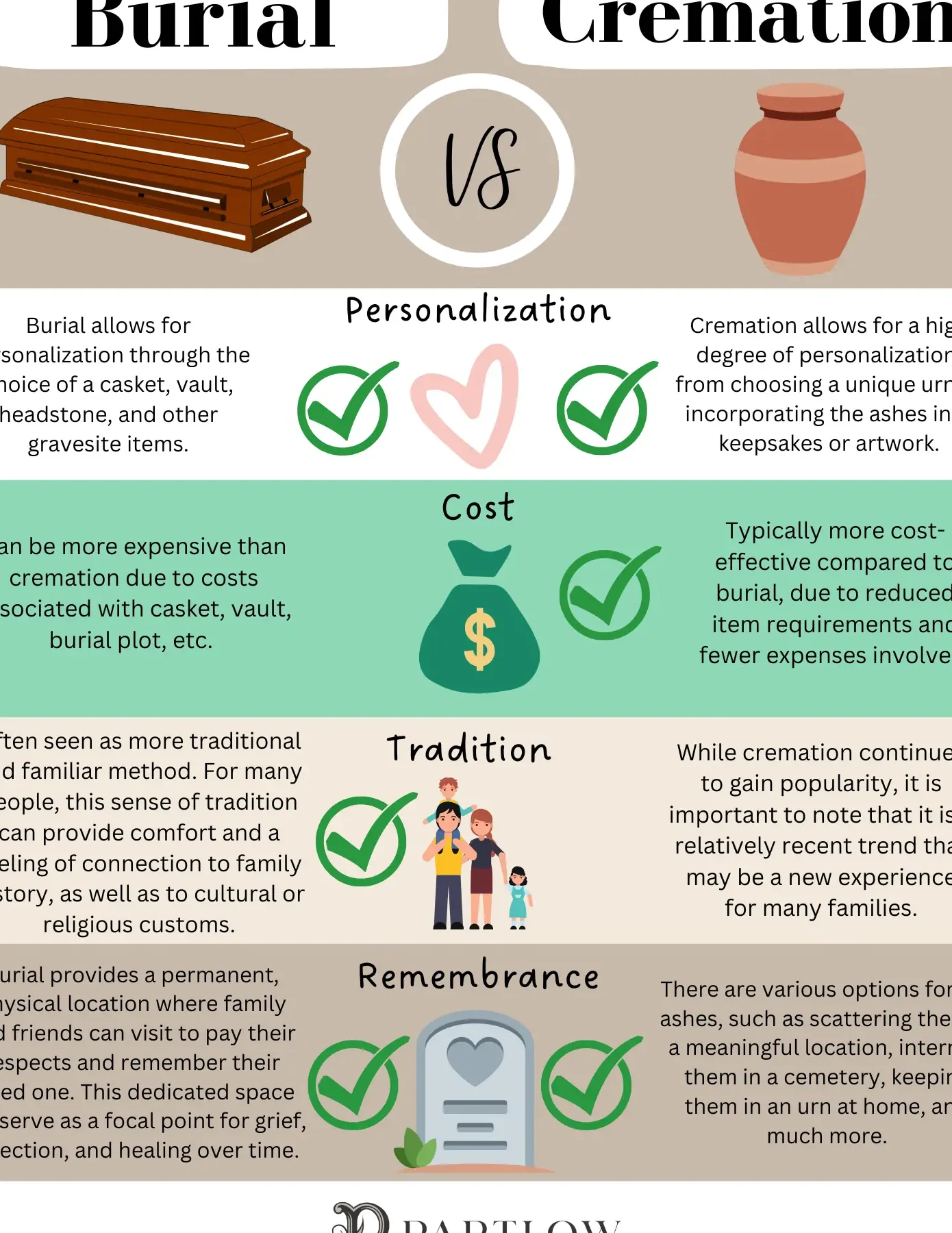The Complete Guide to Burial Traditions offers insights into various types of burial services, including traditional funerals, graveside services, home funerals, and cremation services. It covers key aspects of planning for burial, such as preparing wills, choosing burial plots, and understanding funeral packages. The guide also explores important considerations in the burial process, such as deciding between funeral or cremation burial, selecting burial containers, and handling cremated remains. Ethical and legal considerations, as well as emotional support and grief resources, are also addressed.
Types of Burial Services
In order to honor and remember our loved ones who have passed away, various types of burial services are available. Each service provides a distinct way to pay tribute to the departed and offer solace to the grieving. Here are the key types of burial services:
Traditional Funeral Services
Traditional funeral services are a longstanding practice that involves a formal gathering to mourn, remember, and celebrate the life of the deceased. Usually held in a funeral home or religious institution, these services often include visitation, a religious or secular ceremony, and a procession to the final resting place.
Graveside Services
Graveside services take place at the burial site and provide a more intimate and simplified approach to honoring the departed. Family and close friends gather around the gravesite to share memories, readings, prayers, or other rituals before the deceased is laid to rest.
Home Funerals
In a home funeral, families choose to hold funeral services and prepare the body for burial at home. This alternative option allows for a personalized and intimate experience, where loved ones can participate in washing, dressing, and viewing the deceased within the familiar surroundings of their own residence.
Cremation Services
In cremation services, the deceased is respectfully cremated rather than buried. This choice provides flexibility in terms of the final disposition of the ashes. Families can opt for a traditional funeral service before the cremation or hold a memorial service afterward to cherish memories and scatter or preserve the cremated remains.
These different burial services cater to diverse cultural, religious, and personal preferences. By understanding the unique characteristics of each option, individuals and families can make informed choices that align with their values and ensure a meaningful farewell.
Planning for Burial
Proper planning is essential when it comes to burial arrangements. This section will guide you through the important aspects of planning for burial, including preparing a will and living will, choosing the right burial plot or cemetery, understanding funeral packages and pricing, and organizing personal planning resources.
Preparing a Will and Living Will
Before considering any burial arrangements, it is crucial to have a legally binding will in place. A will outlines your wishes regarding the distribution of assets, including any specific instructions for your burial or funeral. Additionally, a living will specifies your preferences for medical treatments in case you are unable to communicate them yourself.
Choosing the Right Burial Plot or Cemetery
Choosing the right burial plot or cemetery is a personal decision that should align with your preferences and beliefs. Consider factors such as location, religious affiliations, maintenance, and available amenities. Take your time to research and visit different cemeteries to find the one that meets your specific needs.
Funeral Packages and Pricing
Understanding funeral packages and pricing is essential to make informed decisions and avoid any unexpected financial burdens. Funeral homes offer various packages that include different services such as transportation, embalming, viewings, and memorial arrangements. Compare prices and services to find a package that fits your budget and requirements.
Personal Planning Organizer and Resources
Keeping track of all the necessary details for your burial arrangements can be overwhelming. Utilize personal planning organizers and resources to stay organized and ensure nothing is overlooked. These resources can include checklists, worksheets, and online tools that help you document your preferences, important contacts, and any prearrangements you have made.
Considerations for Burial Process
When it comes to the burial process, there are several important considerations to keep in mind. Making the decision between a funeral or cremation burial is a personal choice that should be based on individual and cultural preferences.
Funeral or Cremation Burial: Making the Decision
Another important aspect to consider is whether to opt for ground burial or cremation burial. Ground burial involves interring the body in a cemetery plot, while cremation burial involves the interment of cremated remains.
Ground Burial vs. Cremation Burial
Choosing the right type of burial container or casket is also crucial. Different options are available, such as traditional caskets, eco-friendly alternatives, or urns for cremated remains.
Choosing the Type of Burial Container or Casket
If you opt for cremation, handling the cremated remains requires careful consideration. You may decide to scatter the ashes, keep them in an urn, or choose alternative methods like burial at sea.
Handling Cremated Remains
Lastly, involving family and friends in the burial service can provide support and comfort during the grieving process. They can participate in various ways, such as delivering eulogies, sharing memories, or helping with the logistics of the service.
Involving Family and Friends in the Service
By considering these factors in the burial process, individuals can make informed decisions that align with their values and honor the wishes of their loved ones.
Ethical and Legal Considerations
In the complete guide to burial traditions, it is essential to explore the ethical and legal aspects surrounding the burial process. These considerations play a significant role in determining how individuals and communities approach the final farewell rituals for their loved ones. The following sections delve into the cultural and religious customs in burial traditions, ethical issues that arise in burial practices, and the legal rights and regulations that govern the burial process.
Cultural and Religious Customs in Burial Traditions
Cultural and religious customs heavily influence burial traditions, shaping how individuals and communities approach death and the afterlife. Understanding these customs is crucial for respecting diverse beliefs and practices surrounding death. Whether it is observing specific rituals, adhering to burial site preferences, or incorporating cultural symbols, individuals can pay homage to their heritage and honor the deceased’s wishes.
Ethical Issues in Burial Practices
Burial practices raise various ethical issues that require careful consideration. These issues include environmentally sustainable burial methods, such as green burials, that prioritize minimal environmental impact. Additionally, ethical questions may arise regarding the use of burial spaces, consent for organ donation, and ensuring dignity and respect for the deceased during the burial process. Addressing these ethical concerns ensures that burial practices align with ethical standards and individual values.
Legal Rights and Regulations in Burial Process
The burial process is subject to legal rights and regulations, ensuring proper procedures and protecting the interests of individuals and communities. Such regulations may involve obtaining permits for burial or cremation, compliance with local zoning and cemetery regulations, and addressing ownership rights and responsibilities of burial plots or urns. Understanding the legal rights and regulations surrounding burials is essential to ensure compliance and prevent potential legal conflicts.
Emotional Support and Grief Resources
Dealing with the loss of a loved one is a challenging and emotional process. It is important to have access to emotional support and resources that can help individuals navigate through their grief. Here are some key aspects to consider:
Coping with the Loss of a Loved One
The loss of a loved one can bring overwhelming emotions and grief. It is essential to understand that everyone copes with loss differently. Here are some strategies to help cope with grief:
- Allow yourself to grieve and acknowledge your emotions.
- Seek support from family and friends who can provide a listening ear.
- Engage in self-care activities that promote healing, such as exercise, meditation, or journaling.
- Consider seeking professional help from therapists or counselors experienced in grief counseling.
Grief Counseling and Support Groups
Grief counseling and support groups can provide a safe space for individuals to share their experiences, find solace, and gain insight into their grief journey. Consider the following options:
- Individual counseling with a licensed therapist who specializes in grief and loss.
- Joining local grief support groups that meet regularly and provide a supportive community.
- Online grief support forums and communities that offer a platform for connecting with others who have experienced loss.
Memorialization and Honoring the Deceased
Memorialization and honoring the deceased can be a healing way to remember and celebrate their life. Consider these ideas:
- Planning a memorial service or gathering to commemorate the life of the loved one.
- Creating personalized memorial keepsakes, such as photo albums, videos, or tribute websites.
- Establishing memorials, such as scholarships or donations to charities in the name of the deceased.
Taking Care of Yourself during the Mourning Process
During the mourning process, it is crucial to prioritize self-care and take steps to nurture your well-being. Here are some self-care practices:
- Allow yourself time to rest and recover, both physically and emotionally.
- Engage in activities that bring you joy and provide a sense of normalcy.
- Practice self-compassion and be patient with yourself as you navigate through grief.
- Reach out for support when needed and don’t hesitate to ask for help.
Remember, coping with grief takes time, and everyone’s journey is unique. By seeking emotional support, participating in grief counseling, finding ways to honor the deceased, and prioritizing self-care, individuals can navigate through the mourning process while taking care of their emotional well-being.




